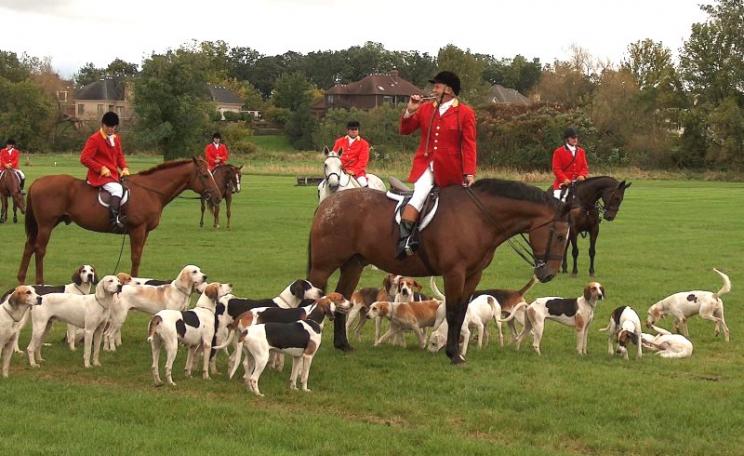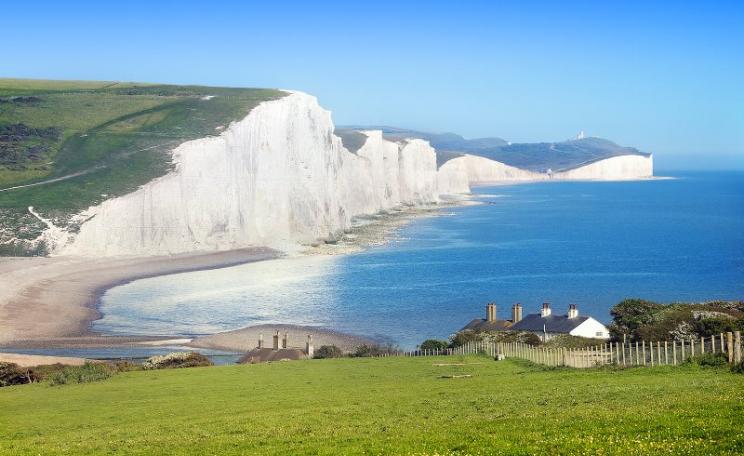Labour's policy suggests that they see animal protection as important. This is good news. But we need effectively enforced and coherent wildlife laws as part of our criminal justice system.
Labour's new animal protection manifesto makes animal protection and wildlife crime a potential, if unlikely, battleground for the next election.
Animal crime is an emotive issue, and one on which the main political parties differ significantly.
Labour's stance to retain the Hunting Act 2004 stands in contrast to the Conservatives' pledge to revoke the ban on hunting.
And Labour's introduction of the Animal Welfare Act 2006 during the last Parliament suggests a positive attitude towards animal welfare.
In its policy statement, the Labour Party identifies that more should be done to end wildlife crime and animal cruelty. These terms are used to refer to a wide range of illegal activities, from the persecution of British animals like birds of prey, to the global trafficking of endangered species and their parts.
Wildlife crime is considered to be one of the most prevalent forms of crime globally. The demand from source countries is a major problem, particularly Chinese demand for prize items like elephant ivory, and Vietnam's demand for rhino horn.
The 2014 London Conference on illegal wildlife trade concluded that poaching and trafficking require action by source, demand and transit countries. As a major destination for trafficked wildlife, the EU has a role to play in addressing global wildlife crime, and Labour's policies acknowledge this. Experts in the field have been making these calls for several years.
Criminologists and conservationists also say there is a lack of resources for wildlife law enforcement, as well as a lack of frontline knowledge when it comes to catching traffickers within the UK. It is also an area where corruption and the involvement of organised crime and different types of criminal require a dedicated enforcement approach.
Labour's policy suggests that they see animal protection as important. This is good news. But we need effectively enforced and coherent wildlife laws as part of our criminal justice system.
There is general political agreement that wildlife crime is important. But in practice, police forces are not required to prioritise it.
And despite the efforts of individual police, enforcement officers and NGOs, wildlife crime enforcement remains significantly under-resourced. Criminologists and conservationists have repeatedly identified this fact.
The thin green line
Labour's basic pledges are sound: it is necessary to combat wildlife crime and prevent the trafficking and poaching of endangered species including elephants, rhino and some sturgeon species.
But these should be criminal justice priorities, not just animal welfare ones. Even if tougher sentences and stricter wildlife laws were introduced, it is unlikely that the number of offences would reduce. In some cases strong penalties already exist, but they are underused: so why would a new regime make any difference?
Instead, an improved enforcement strategy is needed, with increased resources for police and conservation bodies. We also need to reform wildlife crime laws so they are less confusing, and to reduce overlap and address inconsistencies.
The House of Commons Environmental Audit Committee addressed part of this issue back in 2012: the committee identified sentencing inconsistency and prosecutors' lack of expertise as issues in wildlife crime enforcement.
Austerity measures are also a factor. While the UK has an excellent network of police wildlife crime officers, many of them carry out their roles in addition to their 'main' duties. Evidence to the government's committee suggested that, in some areas, wildlife crime enforcement is under threat from police budget cuts.
Changing wildlife laws
The Law Commission says UK wildlife laws should be reformed and combined; another move that would improve wildlife protection. Indiscriminate methods of killing wildlife like snares should be prohibited, and loopholes should be closed.
Some wording in laws means that wildlife can be killed on technicalities when the law is meant to protect it. Phrases like 'wilfully' or 'intentionally' should be replaced with wording that actually helps investigators where an offence has clearly been committed. They should not have to prove the wildlife knowledge or intentions of the offender.
One of the problems with wildlife laws is that there are too many, providing different levels of protection for animals. This causes confusion both for the public and enforcers. The coalition government's Red Tape Challenge suggests that there are 159 regulations relating to biodiversity, wildlife management, landscape, countryside and recreation.
Wildlife investigators and campaigners often complain about ambiguous wording and different standards of protection across wildlife legislation. Because of this, a high level of legal expertise is often required even at the investigative stage.
The Law Commission sought to address this with plans for a more streamlined legal regime. They suggested increased use of civil and administrative penalties, rather than the existing reliance on the criminal law.
Policing priorities
Our current wildlife law enforcement regime makes little provision for crime prevention. Its primary function in practice is to detect and apprehend the offender after the offence has been committed. In the case of wildlife, killed as a result of wildlife crime, this is too late.
Labour's policy suggests that they see animal protection as important. This is good news. But if this is the case, we need effectively enforced and coherent wildlife laws as part of our criminal justice system.
As the election heats up, it will be interesting to see which of our political parties is willing to name animal protection and wildlife crime as important policing issues. But ultimately, it will be more important to see which party will commit to providing resources to make this a reality.
Angus Nurse is Senior Lecturer in Criminology at Middlesex University.
This article was originally published on The Conversation. Read the original article.
![]()




